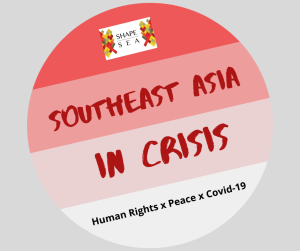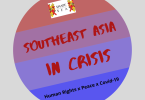Nikodemus Niko Ph.D. Student at the Department of Sociology, Faculty of Social and Political Sciences, Universitas Padjadjaran, in Indonesia. He specializes in gender, human rights, and LGBT studies, and is currently undertaking a research project on women and poverty among the indigenous people of Dayak Benawan.
 In Indonesia, like elsewhere, the COVID-19 pandemic affects not only public health, economics and politics but also sociocultural and food security issues. In fact, indigenous people still haven’t gained any public attention for the way they skilfully maintain food security in their local communities. In this article, I try to explore how Dayak Benawan indigenous women manage food and have become the guardian of domestic food security at the time of this pandemic.
In Indonesia, like elsewhere, the COVID-19 pandemic affects not only public health, economics and politics but also sociocultural and food security issues. In fact, indigenous people still haven’t gained any public attention for the way they skilfully maintain food security in their local communities. In this article, I try to explore how Dayak Benawan indigenous women manage food and have become the guardian of domestic food security at the time of this pandemic.
Indonesian president Joko Widodo was planning to make Kalimantan a food bowl with the food estate program (Bayu, 2020). This means that the Dayak tribe in Kalimantan would be displaced because of their traditional ways of land management. This program potentially waylays indigenous people whose lives still depend on nature. It is expected that about 300,000 hectares will be coopted by Project Food Estate, as it is formally known (Setiawan, 2020).
The Dayak Benawan Tribe is one of the Dayak sub-tribe that settled in Cowet village, Sanggau Regency, West Kalimantan, Indonesia. Dayak Benawan people are scattered in several kampongs, including Pejalu village. Because they still manage nature through local traditions they are under threat by the program.
Dayak Benawan people still allow part of the forest to be used as fields. In fact farming and tree plantations are the main livelihood for the farmer (kume’k) and the Rubber squeegee (motong’k). Since the twentieth century, the community of Dayak Benawan has set aside forests that cannot be used as agricultural fields, to preserve the woods for the next generation.
In the current pandemic situation, it is expected that the Dayak Benawan can survive. This is because Dayak Benawan women have close ties with nature (Tong, 1998) as they are the food gathers and keepers in their families.
The Dayak people believe that the forest is a dwelling house and living space and must be guarded and nourished. For them, nature is like a breath of life for their families. Therefore, Dayak Benawan women manage not only the household but also the environment and forest.
In household and day-to-day life, the Dayak Benawan community relies heavily on nature. Managing forests/nature and making use of their resources produces food, crafts, and monetary revenue. Their family food needs can be provided by vegetables, side dishes, and rice/rice. Plants are obtained from forests, rubber plantations, and farm grounds. While the side dishes are obtained from finding fish in the stream and hunting squirrels and mice in the woods.
During the COVID-19 pandemic, Dayak Benawan women were not anxious when looking for vegetables in the forest because they did not interact with people outside their community, thus avoiding the possibility of contracting and spreading the virus. In fact, their typical family activity for the day includes farming and finding food in the woods. Women as family food keepers store food that they have gathered from the forest. Through their activities they thus have an essential role in preserving the forests.
References:
Tong, R., P. (1998). Feminist Thought: A More Comprehensive Introduction (Second Edition). USA: Westview Press.
Setiawan, Riyan. (2020). Di Balik Jokowi Minta Program Cetak Sawah usai Gusur Lahan Rakyat. Available at: https://tirto.id/di-balik-jokowi-minta-program-cetak-sawah-usai-gusur-lahan-rakyat-fhs5 (accessed 16 July 2020).
Bayu, Dimas Jarot. (2020). Antisipasi Krisis Pangan, Jokowi Perintahkan Pembukaan Sawah Baru. Available at: https://katadata.co.id/berita/2020/04/28/antisipasi-krisis-pangan-jokowi-perintahkan-pembukaan-sawah-baru (Accessed 16 July 2020).





